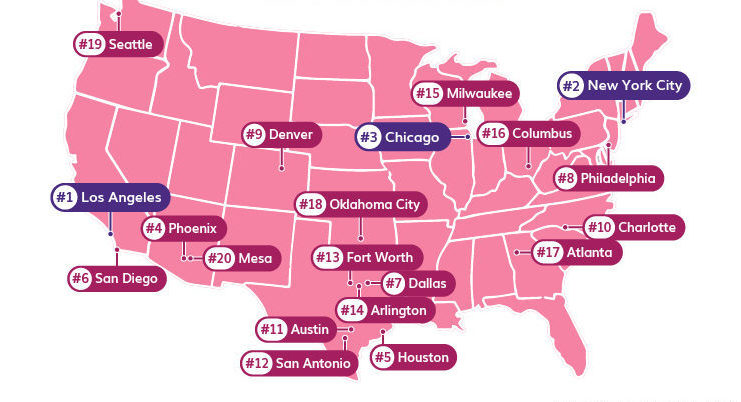With moving being one of the main drivers of the self storage industry, the researchers at STORAGECafé zoomed in on approximately 1.7 million renter applications in order to identify the top US cities for renter interest.
Contrary to the theory that renters are seeking more space in the suburbs during the pandemic, the study shows that 68 percent of Americans relocating in 2020 picked urban living over the suburbs.
Here are a few highlights from the report:
- Denver ranked #9 on the Top 100 Cities for Inbound Renter Migration
- 54% of Denver newcomers moved from an in-state place of origin, and only 31% relocated from a suburban area.
- Aurora, Lakewood and Colorado Springs were the most common originating places for inbound renters
- 18% more renters changed residences in 2020 compared to 2019.
- Urban appeal hasn’t worn off during the pandemic, even if street vitality took a major hit. Only 32% of renters planned to relocate to the suburbs in 2020, pretty much in line with pre-pandemic patterns.
- Millennials made up the bulk of those intent on changing residences – roughly 48%. Gen Zers were the 2nd most mobile renters in 2020.
- 75% of the renters with incomes between $100K and $2M picked urban living.
The most likely origin cities for renters coming to Denver are nearby cities like Aurora and Lakewood, but also Colorado Springs or Boulder. Relocating from Aurora to Denver brings renters a better earnings perspective, as median annual income in Denver is 22% higher than in Aurora.
The only popular out of state origin city for renters moving to Denver is Chicago – and the move is bound to be a happy one, as Denver gets 55 more sunny days per year than Chicago.
According to the study, younger Americans’ preference for urban living will most likely hold strong in the coming years as they are generally driven by the promise of professional and social fulfillment traditionally associated with big city life.
“The big city lifestyle will represent a momentarily larger share of the metro economy post-pandemic, due to the pent-up unexpressed demand for those services and experiences which have accumulated during the COVID-19 era,” said Larry Rosenthal, Senior Lecturer of Public Policy, Richard & Rhoda Goldman School of Public Policy, University of California, Berkeley.









